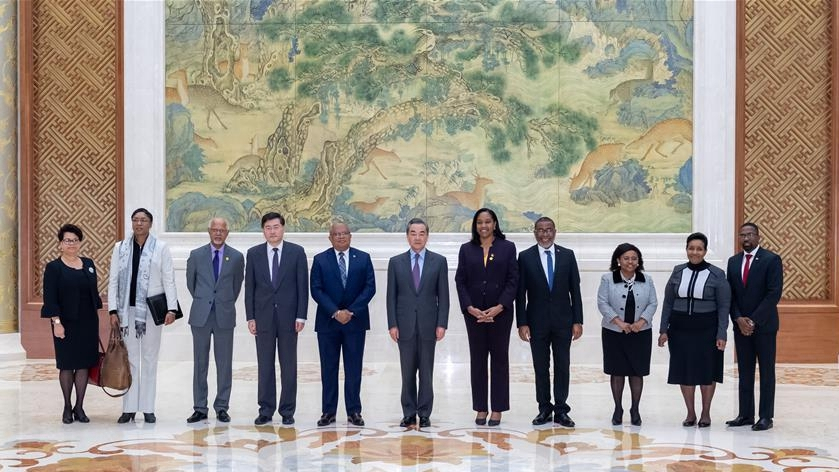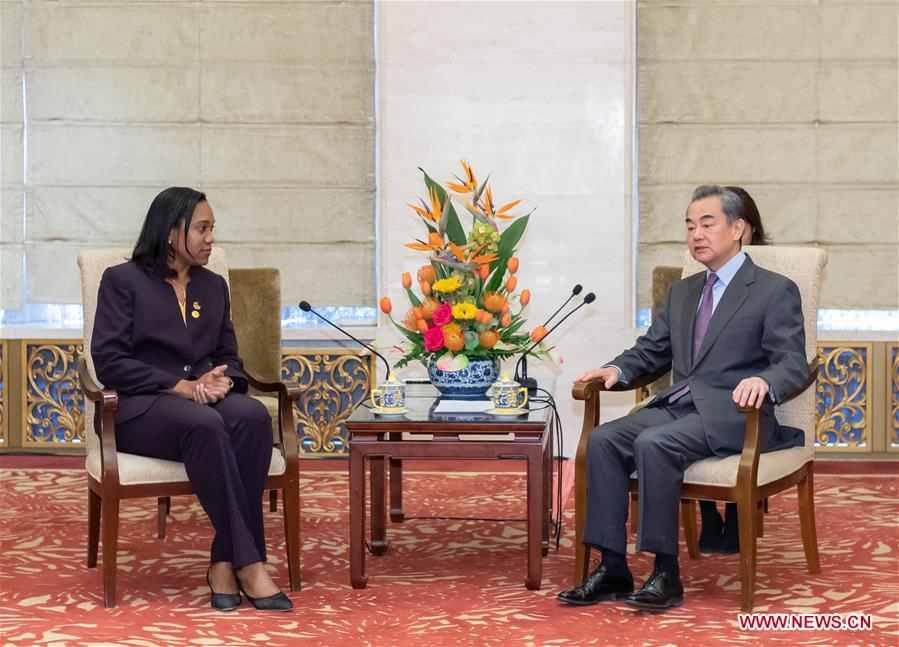
Opinion
17:40, 28-Apr-2019
China and the Caribbean's future
Tennyson Joseph

Editor's note: Tennyson Joseph is a senior lecturer in political science at the Cave Hill (Barbados) Campus of the University of the West Indies (UWI). He has published extensively on the post-colonial development of the Caribbean in the age of neo-liberalism. He has also served as member of the senate in his native country of St. Lucia. The article reflects the author's views, and not necessarily those of CGTN.
China's highly anticipated second Belt and Road International Cooperation Forum (BRF) wrapped up on April 27. Initially not including Caribbean nations, the country's signature policy has gained increasing momentum in the region since 2017. So far, several Caribbean countries, such as Barbados, Jamaica, Dominica and Grenada, etc., have signed up to the initiative, which provides a useful context for offering some reflections on the place of China in the future development of the independent states of the English-speaking Caribbean.
Significantly, this is taking place at a time when the U.S. administration has been trying to lecture leaders in the region on the perils of cooperating with China, a recent example of which is that U.S. President Donald Trump invited a select group of Caribbean leaders on March 22, to discuss, among other issues, "the growing influence of China in the region."
Although the news reports later indicated that China was not as central to the discussions as was the situation in Venezuela, it did not escape notice that the U.S. was openly expressing its hostility to China's presence in the Caribbean, nor did it escape notice that the U.S. had unashamedly given itself the right to invite sovereign Caribbean leaders to Mar-a-Lago to warn them of China's presence in the region as if this were a matter-of-fact problem.
Despite the efforts of the U.S. to extend its hegemony over the Caribbean long after it has lost the ability to be truly hegemonic, there is little doubt that the Caribbean needs a global partner like China for its continued post-colonial development.
Since the early 1990s, the Caribbean states have faced a number of global adjustments which have challenged their chosen path of development. First, it was the liberalization of world trade which terminated the protected trade regimes in primary commodities (sugar and bananas) which had shielded them from global competition immediately after independence.
This was followed by the 2008 global financial crisis, which saw reductions in investment in their tourism, construction and financial services. Now presently, the Caribbean countries are facing a new challenge to their offshore financial services, from the EU, and the OECD, who have occasionally "blacklisted" various states for "harmful tax practices."

Chinese State Councilor and Foreign Minister Wang Yi (R) meets with Francine Baron, foreign minister of the Commonwealth of Dominica, in Beijing, February 21, 2019. /Xinhua Photo
Chinese State Councilor and Foreign Minister Wang Yi (R) meets with Francine Baron, foreign minister of the Commonwealth of Dominica, in Beijing, February 21, 2019. /Xinhua Photo
In short, the prospects of the Caribbean under its continued relationship with the North Atlantic powers, has remained bleak. With few exceptions, rising debt, the drying up of sources of finance for development, the inability to invest in physical and social development, summarizes the experience of the Caribbean since 1990.
It is these realities which underscore the importance of China to the Caribbean. For the first time since the 1950s, a qualitatively different world order is emerging which can provide a space for Caribbean countries to pursue new options for development.
The U.S. has historically treated the Caribbean only in terms of its own security interests, and this tendency has been reinforced by the Trump presidency guided by officials like John Bolton. The Belt and Road Initiative, with its promise for multi-layered prospects for partnership, therefore offers a new and exciting path to Caribbean development.
To achieve this, however, the Caribbean states will need to refashion their foreign policy approaches away from their historical colonial belief that “we are with the West.” Secondly, they need to agree on a common approach for cooperating with China, which can lead to holistic regional development in areas like transport and communications infrastructure. They also need to unify their foreign policy stances in line with the One China policy.
Finally, China should develop a more concerted development relationship with CARICOM. This may be done through the holding of an annual China-CARICOM summit which can systematically set priorities and map present and future areas of cooperation.
(If you want to contribute and have specific expertise, please contact us at opinions@cgtn.com.)

SITEMAP
Copyright © 2018 CGTN. Beijing ICP prepared NO.16065310-3
Copyright © 2018 CGTN. Beijing ICP prepared NO.16065310-3